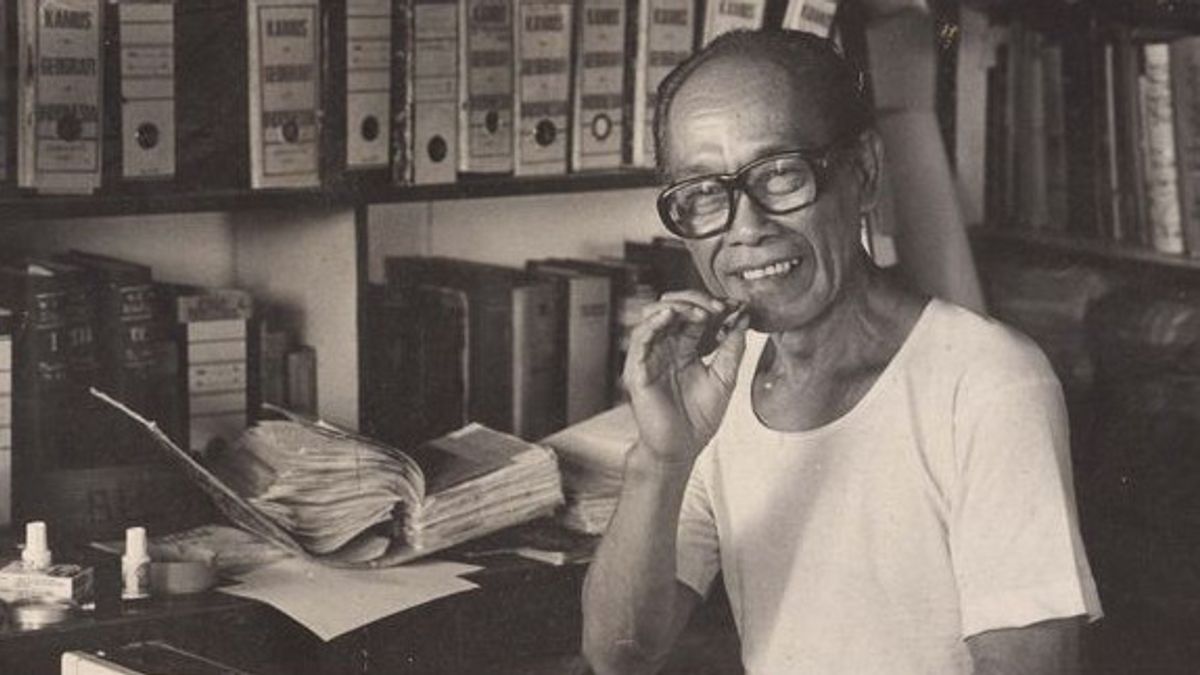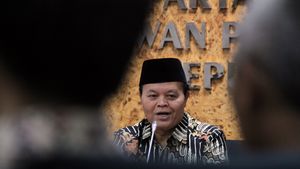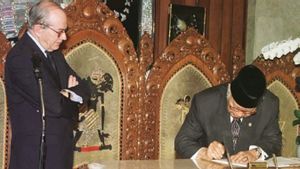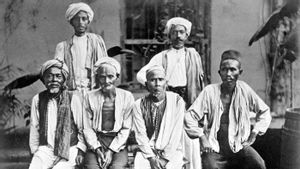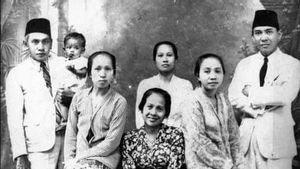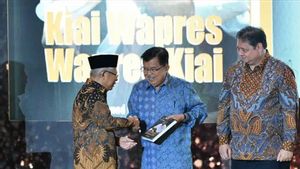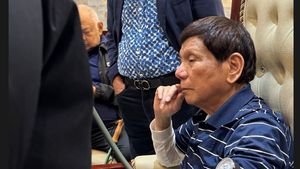JAKARTA - Interfaith marriages are often a hot topic. In fact, since the reign of the Old Order. Muslims are always in a position to reject interfaith marriages. They oppose it because marriage is not valid according to Islamic law.
Writer Pramoedya Ananta Toer agrees with that. For him, Muslim marriages must be of the same faith. He also did not want his eldest daughter to marry a different religion. As a solution, he sent his future son-in-law to study and convert to Islam to Buya Haji Abdul Malik Karim Amrullah (Hamka).
The excitement about interfaith marriages is not new. Interfaith marriages were widely opposed during the Old Order era. The case of the marriage of a Muslim, Soemarni Soeriaatmadja, and a Christian, Ursinus Elias Medellu was behind it in 1952.
Both partners want to take their relationship to the next level. Marriage is the second option. However, the Office of Religious Affairs (KUA) refused to record interfaith marriages. Moreover, Islamic law clearly rejects it.
Soemarni and Ursinus did not give up. They keep trying to make their marriage status legal soon. The case was brought to the Jakarta District Court. As a result, the marriage was blessed because there was no law against religious marriage. Both were married in the Protestant Church.

The woman's family did not accept it either. They asked the Jakarta District Court to cancel the marital status. The move was rejected by the court. The family also brought the case to the Supreme Court (MA).
The Supreme Court actually justified the court's move to reject the annulment of interfaith marriages. As a result, the anger of Muslims in Jakarta peaked. They do not want the state to set aside Islamic law in making decisions.
“In September 1952, around 5,000 Muslims gathered at the Tanah Abang mosque in Jakarta to protest against interfaith marriages and demanded that the state cancel the marriages. They made official statements and demands to President Soekarno stating that the marriage between Soemarni and Ursinus was not valid according to Islamic law," said Sri Wahyuni in the book Nikah Beda Agama (2016).
Astuti and Daniel
The strong protest of Muslims against interfaith marriages is justified. Interfaith marriages are not valid in Islamic law. Writer Pramoedya Ananta Toer agrees with that. He didn't even want his eldest daughter, Astuti, whose partner Daniel wanted to marry, to end up in an interfaith marriage.
Pram advised Daniel to study and convert to Islam. Daniel also agreed. However, Pram realized his limitations in religious knowledge. Pram also asked the two of them to immediately study religion from the famous cleric Buya Hamka so that they would not be half-hearted. Even though Pram and Hamka often clashed.
Pram believes that Hamka is a teacher who has compassion for religion and there is no doubt about that. Hamka also received both of them well. Hamka promised to guide the two of them and lead the process for the prospective husband of Pram's daughter to convert to Islam.
Hamka's attitude shows that the difference in his views with Pram does not mean that they are enemies. In the past, indeed Pram gave harsh criticism to Hamka's work Tenggelamnya Kapal Van Der Wijck (1938). In fact, not only criticism, Pram called the work plagiarism.

Hamka responded lightly. He welcomes competent people to prove. The rest, Hamka does not see Pram as an enemy. Moreover, the two of them often appreciate one another. Both are different just a matter of understanding them. Nothing more.
"After Astuti explained the purpose of her arrival and told her about the background of her relationship with Daniel Setiawan, without the slightest doubt, the request of the two guests was approved by my father. Daniel, the future son-in-law of Pramoedya Ananta Toer, was immediately guided by my father to read the shahadat. My father then advised Daniel to circumcise and schedule to start studying Islam with my father."
"During the meeting with Pramoedya's eldest daughter, Father never mentioned Pramoedya's attitude towards him some time ago. It's really like nothing ever happened between the two of them," explained Irfan Hamka in the book Ayah: Kisah Buya Hamka (2013).
VOIR éGALEMENT:
The English, Chinese, Japanese, Arabic, and French versions are automatically generated by the AI. So there may still be inaccuracies in translating, please always see Indonesian as our main language. (system supported by DigitalSiber.id)
